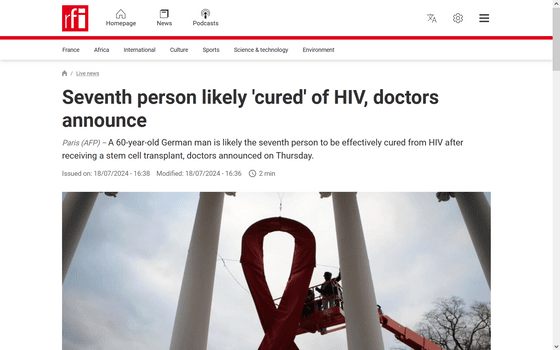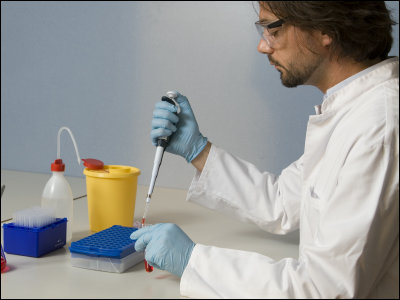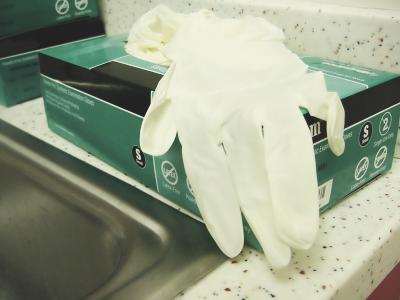Doctors say 60-year-old German man likely to become seventh person in the world cured of HIV

A German HIV patient has been symptom-free for six years after undergoing a stem cell transplant, making him likely the seventh person to be essentially cured of HIV after receiving a stem cell transplant, doctors have announced.
Seventh person likely 'cured' of HIV, doctors announce

According to the research abstract, the German man in long-term remission was first diagnosed with HIV in 2009, underwent a bone marrow transplant for leukemia in 2015, and then stopped taking antiretroviral drugs to reduce the amount of HIV in his blood in 2018. Nearly six years have passed since then, and he has been deemed to have achieved long-term remission as he has not developed HIV or cancer.
'We can never be absolutely certain that the last traces of HIV have been eradicated,' said Dr. Christian Gabler of Charité University Hospital, who treated the patient. 'However, this patient's case is a strong indicator of HIV cure.'

'Researchers are hesitant to use the word 'cure' because it's not clear how long cases like this need to be followed for, but more than five years in remission means this man is 'near cure,'' said Sharon Lewin, president of the International AIDS Society.
Lewin said there's an important difference between this man's case and other HIV patients who have achieved long-term remission: All but one of them reportedly received stem cells from donors who carried a rare mutation that stops HIV from entering the body's cells.
All of these donors were found to have a defective CCR5 gene, meaning they had inherited two copies of the mutated gene (one from each parent), which gave them 'intrinsic immunity to HIV,' Lewin said.
However, this patient is the first to have received stem cells from a donor who inherited only one mutated gene.

While only 1% of Europeans have inherited two copies of the mutated CCR5 gene, as many as 15% have only one, which suggests that more donors may be accepted in the future, the researchers said.
Related Posts:
in Posted by log1p_kr







